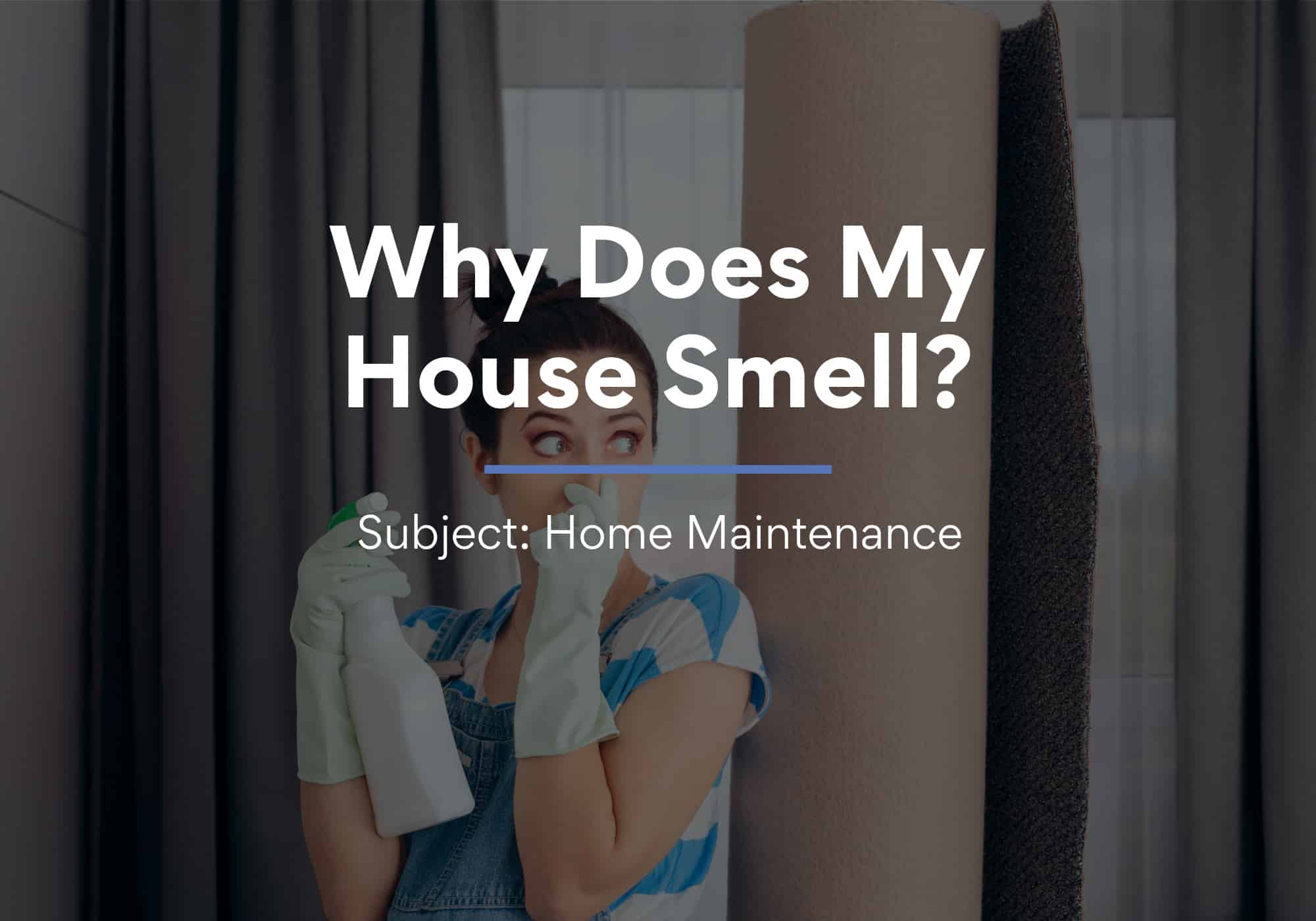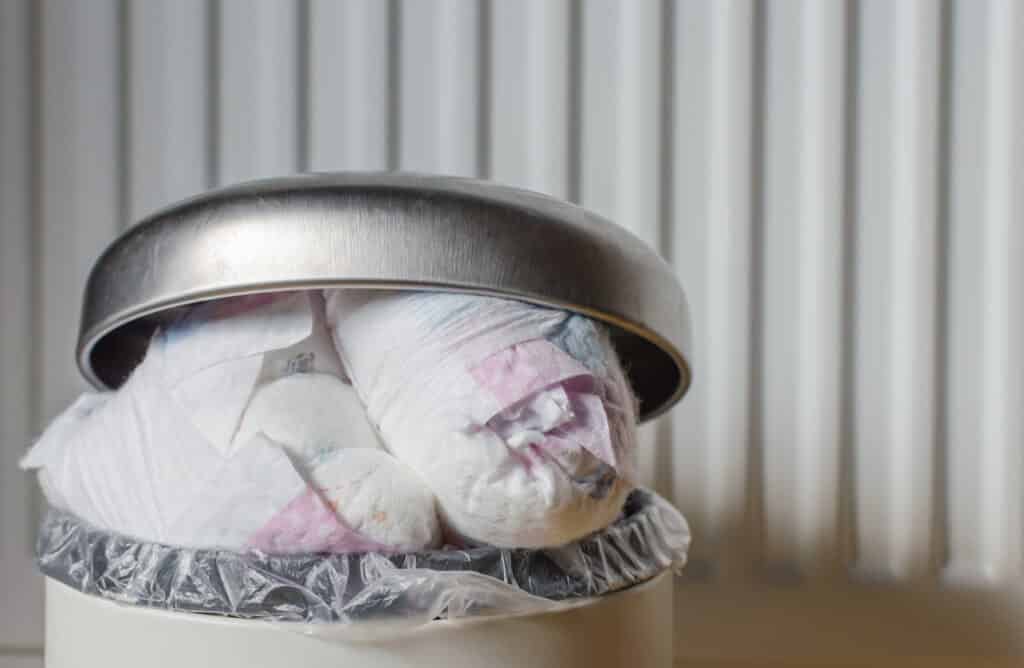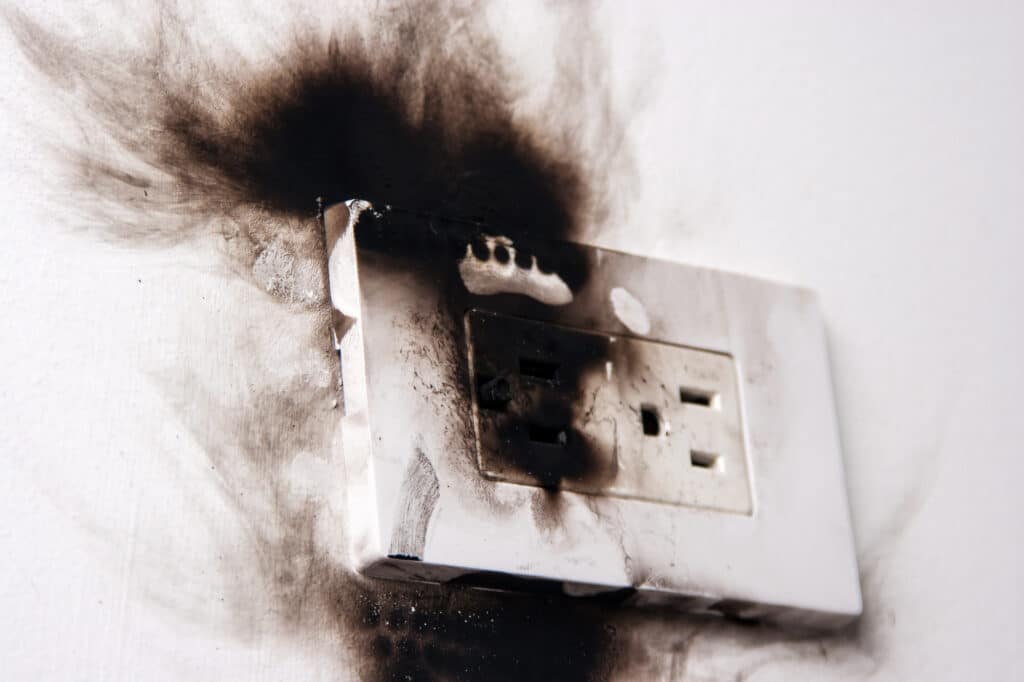From burnt toast to rotten eggs, sometimes houses stink.
But if you’re wondering “Why does my house smell?” it could be due to more than an overflowing trash can.
There’s nothing better than walking into your home and having it smell fresh and clean. As much as we all want to ensure our homes smell welcoming to our family and guests, we are often met with embarrassing odors instead.
If your home smells, there are many possible sources, some of which are easy to fix (good news for those who want to address the issue quickly). However, if you have done everything you can think of and your home still has an odor, the culprit may be more serious.
Let’s take a closer look at the possible reasons behind your house smelling bad and how you can remedy the situation.
“Why Does My House Smell?”
The list below features some of the most common reasons behind home odors. Fortunately, they are often easy to remedy, allowing you to create a fresh-smelling home with minimal effort.
Water Damage
Water is one of the most harmful substances that can affect your home, causing catastrophic damage to your health and property.
Water damage can lead to mold and mildew, creating a dusty, stale, or pungent odor permeating your home. Mold can also cause serious health issues for your family, so you should do everything possible to remove the mold as soon as possible.
If you notice a leak or see any signs of water damage, it’s imperative to call a water damage restoration professional immediately to assess the extent of the damage and develop a plan of action.
Lingering Fabric Odors
Fabric is a porous material, absorbing odors and holding onto them for extended periods of time. Whether you have pets, smoke in the house, or do any of the hundreds of other odor-causing activities, your fabrics will tell the tale.
However, removing all fabrics from your home is impracticable; from curtains to carpets, bed linens to furniture, our homes are full of these odor-retaining items.
If you identify the fabrics in your home as the odor’s source, you have multiple options to remove them and create a fresh-smelling space. Commercial products like Febreze or other fabric refreshers are great for a quick fix. You can even try a homemade odor eliminator spray that targets the source for longer-lasting results.
For a more permanent solution, get your carpets and upholstery professionally cleaned to kill the smell right where it lives.
Trash And Disposal
Your trash can is a prime suspect for indoor home odors and one of the easiest to remedy. If you notice your trash can is the problem, move it to a less conspicuous place, like the pantry or garage, or try scented trash bags.
As a rule, you shouldn’t leave your trash in your home for more than two or three days. Empty and replace it regularly, especially after adding pungent food. You should also thoroughly clean your trash can monthly, washing and rinsing it with an antibacterial soap. Doing this will help remove stuck-on food particles, leading to unseemly odors.
Your garbage disposal is another common culprit for foul odors, often retaining rotting food after use. To ensure it stays clean and sanitary, purchase disposal cleaning tabs or create your own chemical-free yet effective concoction.
Pets
You love your pets, but they can often create foul odors in your home. Whether it’s a litter box, reptile or rodent cage, or even their bed, having pets can make your home smell like a zoo!
To help combat these smells, consider making small changes like switching to an automatic litter box or washing their beds and cages more often.
If that doesn’t do the trick, the smell is likely coming from your pet themselves. While cats rarely need baths, your dog should be bathed at least once a month, to rid them of pet dander, dirt, and other smelly objects.
Dangerous Smells To Be Aware Of
Not all smells are an indication of a bigger problem. Sometimes, a smelly home can be cleaned up with a simple deep cleaning. However, if you find the odor in your home is caused by the reasons listed below, you should seek professional help addressing them immediately.
Mildew And Mold
If you notice that your house smells musty, it could be a sign you have a mildew or mold problem.
Moisture-prone areas like bathrooms and kitchens become breeding grounds for these dangerous culprits, which can cause respiratory and cardiovascular issues. Or there could be mold hidden from your view, especially in Florida, where we have to deal with high humidity for most of the year.
Make sure to thoroughly investigate any musty odors to find the source.
Gas Leaks
If you begin smelling rotten eggs in your home (and you use natural gas), you must immediately vacate your home and call your gas company.
While gas is odor-free by nature, gas companies often add an odorant as a protection for customers. The smell is an urgent signal that a gas leak is somewhere within your home, and it is vital to exit immediately and not turn on any lights or use a landline phone.
Once you are a safe distance away, you can report the leak; just be sure not to re-enter the premises until you are given the all-clear.
Fishy Odors
If you notice your home smells like fish, but you haven’t cooked any, you should call your local electrician immediately.
Often, when an electrical component is burning or overheating, it will give off a fishy odor caused by frayed or loose wired, faulty outlets, overloaded circuits, overheated insulation or electrical shielding, or incorrectly sized fuses or breakers. These problems can result in a fire if they are not addressed properly and quickly.
A Wet Dog Odor
If you smell a wet dog in your home (but you haven’t recently bathed your fluffy companion), it could signal you have a rat, raccoon, or squirrel problem.
These animals can give off a similar smell, indicating it’s time to call a wildlife removal specialist. Rodents and other wild animals can carry rabies and other diseases, transmit worms through infected feces, and more, so it’s best to address the issue as soon as possible.
Pickle Smells
You may think you’re going crazy if your home begins smelling like pickles, but it could be caused by a chemical called formaldehyde.
Although this chemical is a VOC and a dangerous carcinogen, it is used in many manufacturing processes, including resins, fixatives, adhesives, disinfectants, and preservatives. Additionally, since this harmful chemical turns into gas when it reaches room temperature, it can be inhaled, causing many medical problems.
To remove the formaldehyde odor from your home, open all windows and doors and run as many fans as possible. You may also attempt to cover the upholstery or carpets with baking soda, allowing it to sit overnight and vacuum thoroughly.
Conclusion
If you notice bad-smelling odors within your home—and you’re struggling to figure out why—a home inspection may help you uncover the source.
As one of the top qualified inspectors in Central Florida, EDC is ready to examine your home from top to bottom. If anything stands out, we’ll notify you in an easy-to-read report that details the most pressing actions you should take to ensure the safety of your family.




